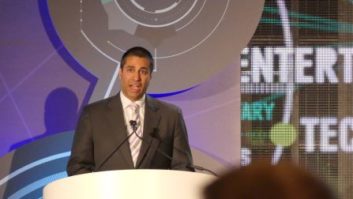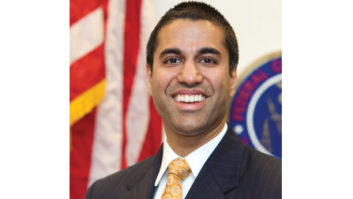The author is membership program director of the National Federation of Community Broadcasters. NFCB commentaries are featured regularly at www.radioworld.com.
Community media advocates are working overtime to call attention to potential Federal Communications Commission efforts that could impact local media forever.
The latest FCC endeavors affect public, educational and governmental access, or PEG, media and have been the subject of protests, petitions and editorials. However, with the commission considering regulations set forth through the Cable Communications Policy Act of 1984, the ongoing pressure from PEG leaders and advocates remains persistent these days week, and into the future.
[Read: Community Broadcaster: Northern Discomfort]
At issue is the aforementioned Cable Communications Act and what cable providers are bound by law to give back. Title VI, Section 622 of the act sets a ceiling on the fees cities can charge cable companies at five percent of companies’ gross revenue from that cable service. Last year, the FCC set off a firestorm of criticism when it announced a move to allow cable companies to deduct nonmonetary requirements they are compelled to adhere to by the act. This would include providing PEG channels’ capacity and associated costs.
The casual observer might not even know where his or her local PEG channel is among the dizzying list of networks a cable operator offers. When one does look, a cornucopia of critical local content awaits. Whether it is televised city council and school board meetings, college courses or local public-affairs programming, PEG channels are a vital part of a city’s media choices. PEG channels are even more indispensable for working families, the elderly, those with limited transportation or other mobility issues, for whom PEG outlets give a window into our democratic procedures. In addition, because so many PEG channels also offer training in media and equipment, they may be the first place someone can go for an education in media that is more affordable than a big-city college. This learning as well as educational programming is doubled in a scattering of cities where PEG outlets offer both television and radio broadcasts.
In the end, the changes mean less funds available to PEG channels and less for the public, at a moment when money is already scarce.
While cord-cutting and the emergence of streaming — thus far excluded from franchise agreements, even if they’re offered by the same cable companies — is already eating into the monies cities once got, the pressure these changes put on PEG channels is enormous. As Jen Ramsey of Easthampton Media recently told the Daily Hampshire Gazette, “In the past five years, there’s been a 20% drop in cable subscriptions in the two towns that we service. So that translates to a 20% drop in our budget. Our budget is dwindling already.”
Moreover, an affected channel leaves many satellite communities reeling. “Going from having franchise fees to not having them, typically what happens in that case is the public access goes away,” Amanda Mountain of Rocky Mountain PBS told the Colorado Sun. “And eliminating that will leave a huge void where some will feel it more than others.”
Maryland’s Montgomery Community Media is among many PEG channels to produce videos explaining PEG stations’ importance and how the existing rules are beneficial. Groups like the Alliance for Community Media, hosting its national conference in Portland this week, have been out in front the last few months to demand accountability from FCC Chair Ajit Pai and commissioners.
We live in an era where the public’s access to information is challenged as never before. Newspapers are closing. Social media is awash in misinformation and detritus. Virtually every media outlet has a spin of some kind on the news of the day. States are even changing laws to restrict access to proceedings. PEG channels are our last outpost for an unfiltered glimpse at city hall and our community. Even if there may be a valuable conversation to be had about fee structures for cable companies, yanking the rug out from cities and towns simply is not the answer.
With the financial support PEG outlets get from fees, this remixing of generations’-old rules could be lethal to community access. PEG channels quietly uplift local economies, providing skills and nourishing the arts, business and many other fields. PEG channels’ funding should not only be held firm, but expanded, given their service to community media and Americans everywhere.
[Subscribe to our newsletter and get it delivered right to your inbox.]












